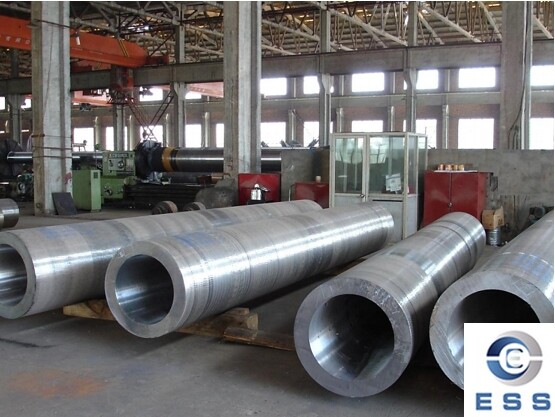
Seamless
steel pipe is an important steel material, widely used in industrial fields
such as petroleum, chemical, electric power, aviation, and aerospace. The
rifling of seamless steel pipes is the spiral line on the pipe wall, which is
used to increase strength and hardness, as well as improve air tightness and
liquid tightness.
Advantages of seamless steel pipe
rifling processing
Compared with other processing methods,
seamless steel pipe rifling processing has the following advantages:
1. Low processing cost and high production
efficiency. For example, when manufacturing a large number of seamless steel
pipes used in pup
joints for construction, efficient and low-cost rifling processing can
reduce the overall project cost.
2. High processing accuracy, able to
accurately control the length, depth and angle of the rifling. This high
precision is essential for manufacturing seamless steel pipe such as precision
tube that have strict requirements on dimensional accuracy and internal
structure.
3. The surface of the rifling after
processing is smooth and burr-free. This feature has obvious advantages in
scenarios where the medium inside the pipeline needs to be smoothly
transported.
4. No subsequent processing is required and
it can be used directly, which greatly shortens the production cycle.
Rifling processing method and principle
The rifling processing principle of
seamless steel pipe is to use the inner spiral trolley to cut a certain spiral
line on the inner surface of the steel pipe. The cutting depth of the rifling
and the movement speed of the tool must be controlled very accurately to ensure
that the size and quality of the rifling cut out meet the requirements. The
rifling processing of seamless steel pipes is divided into two types:
condensation method and thermal condensation method, among which condensation
method is one of the commonly used processing methods.
1. Condensation method processing
First, spray the paint on the surface of
the seamless steel pipe, and then cool the paint to form a film. Next, wrap a
steel wire around the film. Due to the condensation of the paint, the steel
wire will condense on the pipe wall together with the paint to form a spiral
line. Finally, the spiral line is cut into a suitable length and angle by
cutting and grinding to form it.
2. Thermal condensation method processing
The thermal condensation method is to
process the spiral line on the seamless steel pipe by thermal condensation.
Pull the heated wire to the pipe wall, and then apply a layer of paint on the
wire surface. The paint is solidified and the wire is condensed by cooling, and
then the wire can be removed.
Precautions
1. Selection of cutting tools
The selection of cutting tools should be
based on the material of the steel pipe, the required processing quality and
the cutting process requirements, so as to select the best cutting effect. At
the same time, in order to avoid cutting errors and safety problems, the
quality of the tool should be guaranteed.
2. Cutting depth control
The control of cutting depth is very
important, and attention should be paid to it at all times during the cutting
process to ensure that the quality of rifling cutting meets the requirements.
3. Cleaning
During the cleaning process, be careful not
to use too rough brushes or too strong water flow, which will cause damage to
the cutting marks on the surface of the steel pipe.
4. Safety
During the operation, attention should be
paid to safety issues, such as the operating status of the machine tool and
whether the safety protection facilities of the operator are in place.
Summary
In short, the processing of the rifling of
seamless steel pipes is to wrap the spiral wire around the pipe wall by
condensation or thermal condensation, and then form it through processes such
as cutting and grinding. This processing method has the advantages of low cost,
high processing efficiency and high processing precision, which is of great
significance for the production and processing of seamless steel pipes.
Read more: Seamless Steel Pipe Sizes













 Eastern Steel Manufacturing Co.,Ltd not only improve product production and sales services, but also provide additional value-added services. As long as you need, we can complete your specific needs together.
Eastern Steel Manufacturing Co.,Ltd not only improve product production and sales services, but also provide additional value-added services. As long as you need, we can complete your specific needs together.










